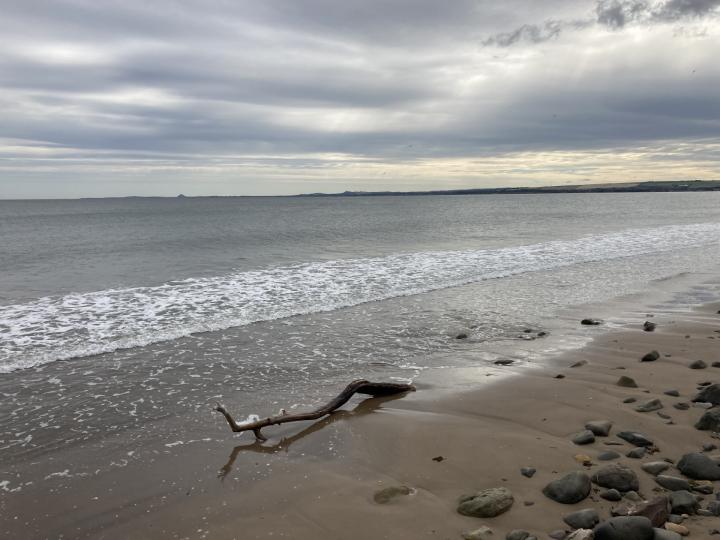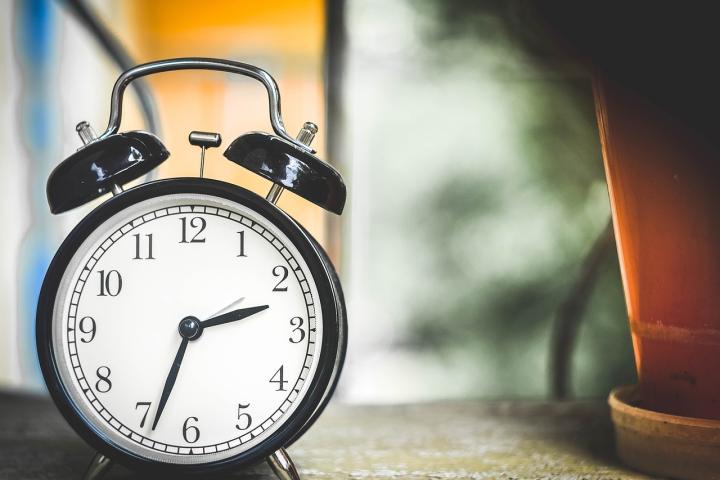Life in Analogue
MindLetter post written by Dr Kitty Wheater.
Dear all,
I hope you've been enjoying the warm weather, and that this finds you well-rested after the travels and sojourns of a summer break.
For this week's MindLetter, have a read - and then close your laptop, put your phone on airplane mode, and take some time for yourself. Even if it's just a minute.

Life in Analogue
For me: an alarm clock, a pile of notebooks. Cheryl Strayed’s Wild over breakfast, my annual imaginary pilgrimage. The red poppies by the side of the road, the way the honeysuckle sings with scent in the evenings. Swimming in the rain, drops gleaming like pearls as they bounce from the surface of the sea. For Hope: the chasing of crows, old white gulls, young salt-and-pepper. The sniffing of purple corydalis and vervein, and leaping through long grass, and a wheel and spin with the lurchers, their long bodies a miracle of expansion and speed. We are living summer in analogue.
I opted in for myself first, and then for Hope, after the vet had opinions about the use of balls for border collies. It makes sense; we are of a mind about so much, Hope and I, alacritous workers, hyper-fixational. And summer is a time for intervention, another gift of the seasons like the dawn of a new year. After six months of hard graft, the longest day might find our minds running forty-five tabs at once. They have accrued as we bookmarked and saved for later and never quite put to rest. As time winds on, and we sense our resources wearing thin, we compartmentalise between riotous busyness, and a version of self-care that is a reprieve but never an integration. We think integration can come later, and so, slowly, we lose integrity.
It’s a moral term, but also a descriptive one. It captures a kind of wholeness, a state in which the disparate folds together, co-exists, is contained and mutually containing. Disintegration is a falling apart: dissolving into nothingness or polarising into shards that haul away from one another. ‘Mr Duffy lived a short distance from his body,’ wrote James Joyce in Dubliners. Disintegration might seem, in theory, a stable state; Mr Duffy seems settled in his disembodiment. But life, having that curious quality of being alive, is constantly in motion, and so such settling is temporary. There are times when we all must reckon with disparateness of self, or purpose, or way of being.
Enter the analogue. It’s a different etymology from ‘integrity’, although I like the pleasingly mirrored ‘g’, an honest sound on the tongue. It means ‘proportionate’, which makes a lovely sense to me, surveying the fragments of my tired mind and desk-strained body. Proportionality invites, depending on the substance, both sameness and difference. It asks us not to throw out what doesn’t please, but rather to gently bind and place it; and then to grow what suits, to water and feed and put it in sunlight. The wisdom of proportionality is also one of reassurance. Sometimes we feel that parts of us are gone forever; the analogue teaches us that they are simply quiet and underground.

Life generally privileges the loud and visible, so it may take some time, and a crunchy moment, before we realise that our proportions are out of whack. My moment was when my laptop went in for repair. My forty-five tabs were, literally, gone. I even had to sign a document which said my data could be wiped. I’d backed it up, of course, but was struck by the childlike note of glee which pinged suspiciously from a rebellious corner of my brain. Burn it all down! Begin again!
I didn’t, but it did make me think about what I use my computer for, and how it uses me. Without it, I began taking notes by hand for the first time in years, not as an accident – caught short in a café without a keyboard – but purposively. Two hours, a nice ballpoint, smooth paper. I started looking suspiciously at my mobile phone, and putting it to bed out of reach of mine. I bought an alarm clock, an old-fashioned one, like the kind that roused me for school day after day as an analogue teenager. I precede the iGen; my evenings after school were spent scribbling furiously by hand, and play was with sticks and grasses and rocks and cardboard and offcuts of wood (and yes, Barbie. And Sylvanians!), and I am wary of nostalgia and yet – and yet…
And to Hope, my canine analogy, browser tabs are ball, and Twitter is ball, and to-do lists are ball, and ball is busyness and chase and obsessive, pleading, brown-eyed gaze. ‘Ball is life,’ says my brother-in-law, as she leaps and lands. But what form of life? ‘Ball is bad for them psychologically,’ says the vet. These plastic spheres are doggy crack, and I’m the dealer. So the ball goes in my pocket; it’s only for recall now, and Hope learns to run and bolt and chase the gulls, and when she’s tired there’s a wholesomeness to it. An integrity.
As I write by hand, and think about play, and lost crevices of my brain stir magically awake, I talk to friends about life in analogue. I find other souls seeking re-enchantment; so many of us, stretched fine enough to break or to dissolve, within ourselves and among each other. We excavate our pieces from the depths. Fearfully, sometimes, but also in wonder, we open to what integration really means: a newness in which all our shards have their place; proportional, if only for a moment; contained in the motion, the sparkle and dullness, leaping and landing that is life itself.
I wish you curious experiments with analogue living, this week.
Warmly
Kitty

